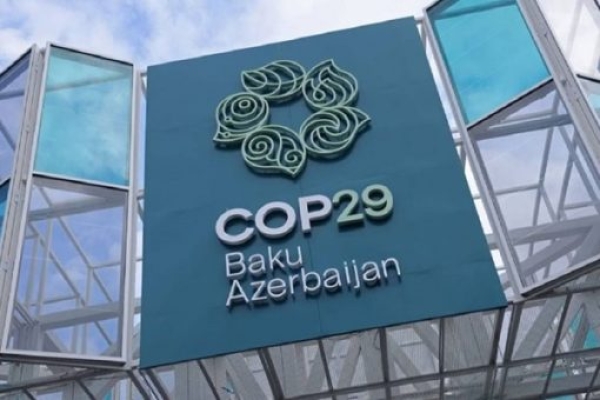Nigeria has issued an urgent call to action regarding the growing impacts of climate change on its regions, as highlighted during a side event hosted by the Federal Ministry of Regional Development at COP29.
The event, themed “Fostering Regional Synergies for Climate Resilience and Inclusive Development in Nigeria,” brought to the fore the country’s vulnerabilities and efforts to address them.
The Minister of Regional Development, Engr. Abubakar Momoh, stressed the severity of climate challenges facing the nation, noting that agriculture, infrastructure, public health, and livelihoods are all at risk.
In a statement issued on Thursday by his Special Assistant on Media, Osigwe Omo-Ikirodah, the Minister said: “the effects of climate change are evident across Nigeria. Together, we must act decisively to protect our people, our environment, and our future”.
Engr. Momoh outlined the specific challenges afflicting Nigeria’s six geopolitical zones and the Niger Delta region.
Rising temperatures and drought in the North Central region are threatening agricultural productivity, while pollution and erratic rainfall are endangering water resources such as the Niger and Benue rivers.
In the North East, desertification and reduced rainfall are accelerating the expansion of the Sahara Desert, displacing communities and fueling conflicts.
He said the North West has seen unpredictable rainfall result in severe flooding, damaging infrastructure and displacing residents.
In the South East, heavy rains cause gully erosion and landslides, destroying property and forcing people to abandon their homes.
Coastal erosion, sea-level rise, and oil pollution are severely degrading the ecosystems of the South South region, while the South West grapples with urban flooding caused by inadequate drainage and rising sea levels, posing threats to public health and economic activity.
The centerpiece of the Ministry’s presentation was the launch of the Niger Delta Climate Change Programme and Action Plan (NDRCCP-AP), a detailed strategy designed to address the specific vulnerabilities of the Niger Delta.
The Minister explained that nearly all the region’s primary forests have been lost due to human activity, oil exploration, and acid rain, further compounding the effects of climate change.
“This action plan prioritizes sustainable development, low-carbon growth, and poverty alleviation,” Engr. Momoh said.
The plan includes sustainable livelihood projects aimed at empowering small-scale farmers, mangrove reforestation for carbon sequestration and soil stabilization, and flood and erosion control projects supported by early warning systems.
Capacity-building initiatives are also a key component, focusing on equipping stakeholders with the tools needed to enhance climate governance and response efforts.
Aligned with Nigeria’s commitments under the Paris Agreement, the NDRCCP-AP emphasizes the integration of adaptation and mitigation projects to build resilience and foster sustainable growth.
The Minister called for strengthened partnerships with both local and international stakeholders to secure funding and support for the plan.
“We cannot tackle this challenge alone. Climate action requires robust collaboration across governments, businesses, and communities,” he noted.
The Ministry also reiterated the need for transitioning to cleaner energy sources, addressing deforestation, and leveraging technology to strengthen Nigeria’s climate resilience.
As COP29 continues, Nigeria’s contributions underscore its dedication to addressing the global climate crisis while ensuring sustainable development.
Engr. Momoh concluded with a resounding appeal for collective action: “Together, we must act now to secure a safer and more sustainable future for Nigeria and the world.”
[TheNation]

